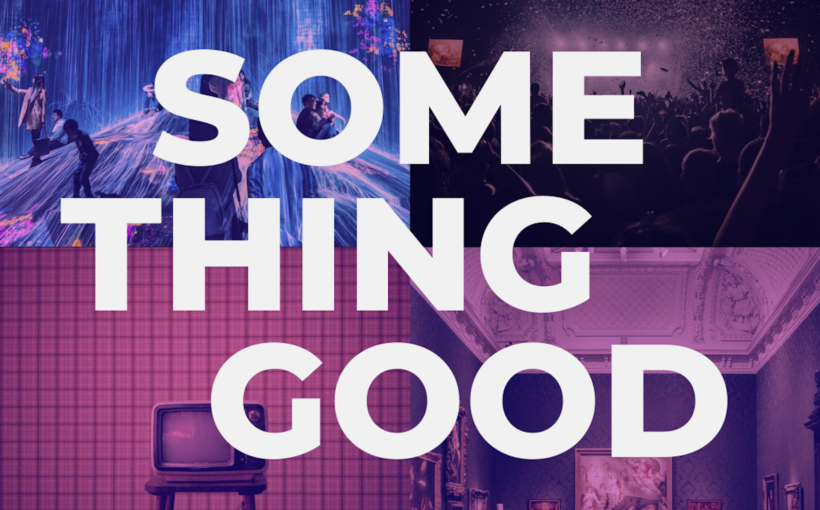Neither the choice of genre (survivalist horror) nor time period (43,000 years ago) bodes well for Out of Darkness. After all, films set in the stone age tend to be comedic, sexualised or woefully historically inaccurate. Think Ice Age (2002), Clan of the Cave Bear (1986) or 10,000BC (2008) – in which mammoths help build the pyramids. Yet this film is neither. It goes way beyond expectations with its attempts at historical accuracy, and what’s more it is fun to watch – especially if suspense or a high body count are your thing.
A film set at the time of modern human and Neanderthal interactions is long overdue, given both the better public understanding of this period and Neanderthals being thought of in more humanised terms than ten years ago.
What’s more, as we face more existential threats there is a greater tendency to look to the distant past for inspiration for how we should live, both physically and emotionally. Still, the producers of Out of Darkness should be applauded for having the guts to tackle some of the real challenges of setting a film in this period.
They have used as authentic a language as possible – hiring linguist Dr Daniel Andersson to create a stone age-sounding language especially for the film, translated for the audience using subtitles. They also cast actors with accurate skin tones. The makeup of the group at its heart is realistic, with older and vulnerable members and, refreshingly, a competent, proactive woman lead (who is dressed in appropriate clothing, rather than a fur bikini).
Is the film historically accurate?
Out of Darkness follows a small group of modern humans who set out across the Europe of 43,000 years ago, trying to find new land and rescue the leader’s son, who has apparently been taken by some strange creatures.
There are amazing landscapes, tense scenes and – as is expected from a survivalist horror – few people left standing after the carnage. For those of us looking for meaning under the macabre, there is a cautionary tale about acting on assumptions and the dangers of rage and fear.
There is plenty of detail here which fits the evidence we have about this period of the stone age (known as the middle-upper palaeolithic transition). There’s fitted clothing with fur inside, decorated spears, fire-lighting kits, a rondelle (a bone disc with a central hole) and Neanderthals with raptor feather headdresses.
There are even rather slick references for the knowledgeable. Dead mammoths are shown at the bottom of a ravine modelled on La Cotte de St Brelade, a Neanderthal hunting site in Jersey. Neanderthals are shown taking and wearing modern human jewellery as a nod to the Châtelperronian bone pendants, found in the south of France.
People are buried at a location that looks remarkably like the most famous Neanderthal burial site, Shanidar Cave in Iraq. Even depictions of cannibalism are not at odds with what we know of mortuary practices in the period.
The wider social settings also bring some welcome authenticity. Telling firelight stories of courageous journeys into new lands, the elderly, young and pregnant work together.
Is Out of Darkness entirely prehistorically accurate? No, of course not. But it goes way beyond most depictions. In reality, stone age people would have carried tents and built shelters, not fought over a cold damp cave. They would also have found a fair bit of food in the tundra rather than starving. And of course it is not clear how the characters in the film managed to shave.
I would also expect links to other groups, or perhaps more of a story as to why this group is so isolated. And the voices of the Neanderthals are a bit too far fetched (more like a squawk than high-pitched language). What’s more, the lack of other living things depicted feels like a missed opportunity to include more predators, which were genuinely dangerous and scary in the stone age.
Stone age bad guys
As a professor of the archaeology of human origins, the one thing I dislike about the film is that subservience to the “bad guys” doesn’t fit what we know.
The leader of this small band of travellers, Adem (Chuku Modu), is a bit of bully, who tells women what to do or say, and supports some hierarchy in which “strays eat last”. Neither the impulsiveness nor the violence fit what we know of hunter-gatherer populations. Their emotional regulation (capacity to feel emotions consciously rather than simply act on them) was actually far better than ours in our comparatively dysfunctional modern societies.
It is also hard to see how humans and Neanderthals could live contemporaneously for as much as 10,000 years with such a mutual wipe out. But given that bloodshed comes with the genre, all of this may be something we need to forgive.
I might perhaps let them get away with this if we accept these people were some kind of dysfunctional outcast party, in which dominance tactics might be more tolerated and normal rules didn’t apply.
There is, after all, plenty to love. Out of Darkness offers a great portrayal of a capable stone age woman protagonist – and equally capable Neanderthal woman. Beyah (Safia Oakley-Green) is adept with both knife, spear and any convenient rock, dispatching people whenever the occasion demands (which seems to be pretty regularly).
There will always be some gripes over accuracy here and there but Out of Darkness is fun to watch, and it is great to see the period opening up to more informed popular imagination. I’m hoping for a sequel.

Looking for something good? Cut through the noise with a carefully curated selection of the latest releases, live events and exhibitions, straight to your inbox every fortnight, on Fridays. Sign up here.
![]()
Penny Spikins was amongst several academics who spoke to the film producers in the very early conceptual stages of the film.



